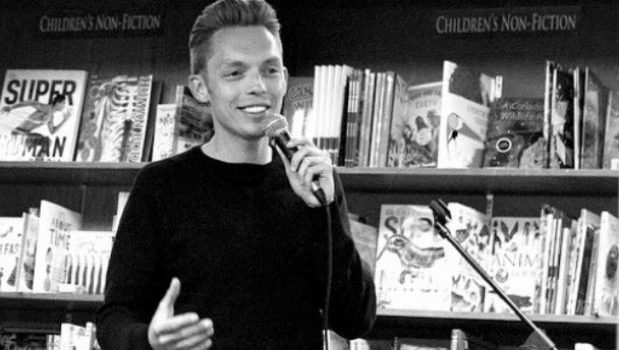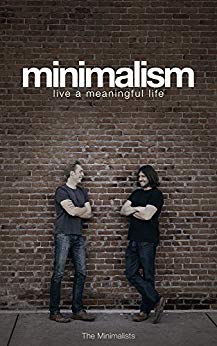

This article is an excerpt from the Shortform summary of "Minimalism" by Joshua Fields Millburn and Ryan Nicodemus. Shortform has the world's best summaries of books you should be reading.
Like this article? Sign up for a free trial here .
How did Joshua Fields Millburn, co-founder of theMinimalists.com, become a minimalist? What’s his life history and inspiration?
Joshua Fields Millburn: Striving for Unhappiness
Society tells us that working hard, climbing the corporate ladder, acquiring material things like a big house and fancy car, and taking expensive vacations is the American dream, and will make you happy.
Co-authors Joshua Fields Millburn and Ryan Nicodemus achieved those things.
But they weren’t happy, fulfilled, or content — in fact, they felt empty and depressed. Together they examined their lives (they were longtime friends) to determine what was missing and how to achieve happiness and meaning.
Joshua Fields Millburn: An Unhappy Childhood
Joshua tried to cope with the disorder in his home life by becoming OCD, obsessing over small things, as well as losing weight.
After graduating from high school, Joshua Fields Millburn got a sales job with a telecommunications corporation. He realized his job had long-term growth possibilities, so he worked hard, taking little time off; he became a top salesman.
He got married, built a large house, and continued to work harder and longer. But he neglected his relationship and didn’t spend much time at home because he was always working. Because he still felt unfulfilled he bought things in order to achieve temporary highs.
Joshua Fields Millburn remained unhappy and his health suffered — so he worked harder and bought more stuff. Though unhappy, he took solace in the fact that at least he was making money, and his career gave him an identity.
Lessons from Joshua Fields Millburn
A number of common threads ran through Joshua’s and Ryan’s lives. Both of them sought money and social status from their jobs. They worked obsessively and earned praise, promotions, and big raises.
But these provided only momentary satisfaction. They sought happiness by constantly striving for more of these rewards, achieving more to improve their feelings of self-worth and significance. Like a drug-induced high, the more affirmation they received, the more they needed it to function and feel happy.
Meanwhile, their ever-increasing job responsibilities brought stress, worry, and depression.
They knew something needed to change, but weren’t sure what. So like many Americans, they continued trying to buy happiness through acquiring possessions. They went into debt purchasing luxury cars, big houses with expensive furnishings, and taking expensive vacations.
But again, they achieved only temporary highs, and ended up feeling depressed and empty — with the addition of a mountain of debt.
They discovered a lifestyle — minimalism — that enabled them to:
- Reject consumer culture and society’s definition of success.
- Systematically re-examine and reflect on their lives.
- Inventory their possessions and emotional lives, and get rid of the things making them unhappy or holding them back.
- After ridding themselves of clutter, focus on “Five Values” that they determined were essential for a meaningful life: health, relationships, passions, growth, and contributing to others.
———End of Preview———

Like what you just read? Read the rest of the world's best summary of "Minimalism" at Shortform . Learn the book's critical concepts in 20 minutes or less .
Here's what you'll find in our full Minimalism summary :
- What Minimalism is, in complete detail
- How to simplify your life and get rid of things you don't need
- What's holding you back from your ideal career passion
- How to take care of your body and health, the simple way






